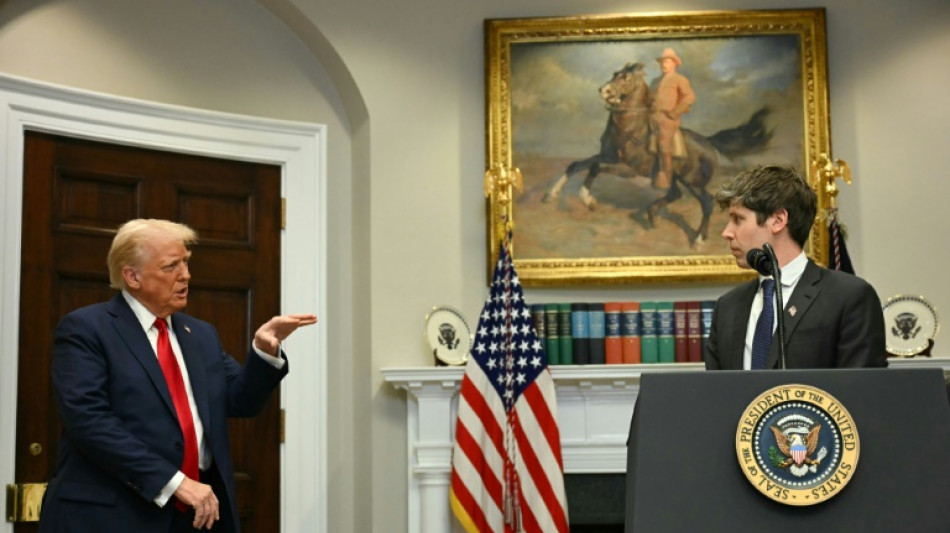
-
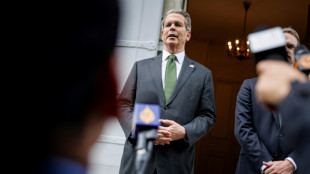 US and China hail 'progress' after trade talks end in Geneva
US and China hail 'progress' after trade talks end in Geneva
-
Jeeno keeps cool to win LPGA's Americas Open

-
 Hamas to release hostage as part of direct Gaza talks with US
Hamas to release hostage as part of direct Gaza talks with US
-
Marvel's 'Thunderbolts*' retains top spot in N.America box office

-
 Parade, protests kick off Eurovision Song Contest week
Parade, protests kick off Eurovision Song Contest week
-
Forest owner Marinakis says Nuno row due to medical staff's error

-
 Hamas officials say group held direct Gaza ceasefire talks with US
Hamas officials say group held direct Gaza ceasefire talks with US
-
Zelensky offers to meet Putin in Turkey 'personally'

-
 Inter beat Torino and downpour to move level with Napoli
Inter beat Torino and downpour to move level with Napoli
-
'Not nice' to hear Alexander-Arnold booed by Liverpool fans: Robertson

-
 'We'll defend better next season': Barca's Flick after wild Clasico win
'We'll defend better next season': Barca's Flick after wild Clasico win
-
Trump urges Ukraine to accept talks with Russia

-
 Amorim warns Man Utd losing 'massive club' feeling after Hammers blow
Amorim warns Man Utd losing 'massive club' feeling after Hammers blow
-
Complaint filed over 'throat-slitting gesture' at Eurovision protests: Israeli broadcaster

-
 Newcastle win top-five showdown with Chelsea, Arsenal rescue Liverpool draw
Newcastle win top-five showdown with Chelsea, Arsenal rescue Liverpool draw
-
Departing Alonso says announcement on next move 'not far' away

-
 Arsenal hit back to rescue valuable draw at Liverpool
Arsenal hit back to rescue valuable draw at Liverpool
-
Pakistan's Kashmiris return to homes, but keep bunkers stocked
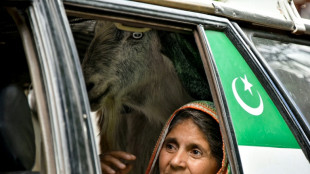
-
 Postecoglou hopeful over Kulusevski injury ahead of Spurs' Europa final
Postecoglou hopeful over Kulusevski injury ahead of Spurs' Europa final
-
Washington hails 'substantive progress' after trade talks with China
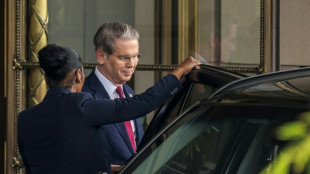
-
 Barca edge Real Madrid in thriller to move to brink of Liga title
Barca edge Real Madrid in thriller to move to brink of Liga title
-
Albanians vote in election seen as key test of EU path
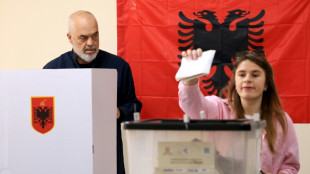
-
 Forest owner Marinakis confronts Nuno after draw deals Champions League blow
Forest owner Marinakis confronts Nuno after draw deals Champions League blow
-
Dortmund thump Leverkusen to spoil Alonso's home farewell

-
 Pedersen sprints back into Giro pink after mountain goat incident
Pedersen sprints back into Giro pink after mountain goat incident
-
Zverev cruises into Rome last 16, Sabalenka battles past Kenin
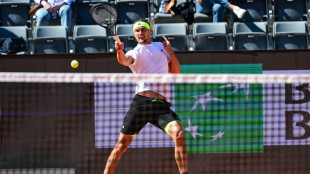
-
 Newcastle win top-five showdown with Chelsea, Forest held to damaging draw
Newcastle win top-five showdown with Chelsea, Forest held to damaging draw
-
Iran says nuclear talks 'difficult but useful', US 'encouraged'
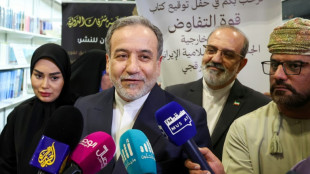
-
 Zarco first home winner of French MotoGP since 1954
Zarco first home winner of French MotoGP since 1954
-
Taliban govt suspends chess in Afghanistan over gambling
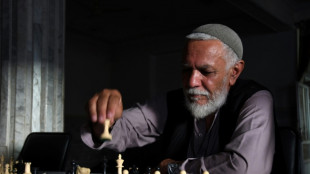
-
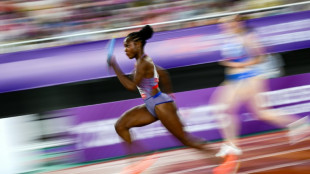 Eduan, Simbine shine at world relays
Eduan, Simbine shine at world relays
-
Washington 'optimistic' amid trade talks with China
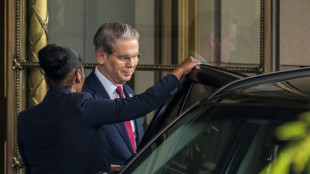
-
 Tonali sinks 10-man Chelsea as Newcastle win top five showdown
Tonali sinks 10-man Chelsea as Newcastle win top five showdown
-
Ukraine says will meet Russia for talks if it agrees to ceasefire

-
 India's worst-hit border town sees people return after ceasefire
India's worst-hit border town sees people return after ceasefire
-
Pope Leo XIV warns of spectre of global war in first Sunday address

-
 Ukraine says will meet Russia for talks if Moscow agrees to ceasefire
Ukraine says will meet Russia for talks if Moscow agrees to ceasefire
-
Sabalenka battles past Kenin and into Rome last 16

-
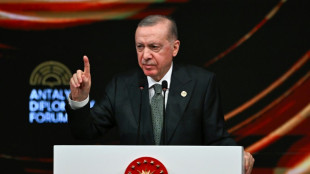 Erdogan says efforts to end Ukraine war at 'turning point'
Erdogan says efforts to end Ukraine war at 'turning point'
-
Pope Leo XIV calls for peace at St Peter's prayer

-
 Ukraine will meet Russia for talks if Moscow agrees to ceasefire
Ukraine will meet Russia for talks if Moscow agrees to ceasefire
-
India, Pakistan ceasefire holds after early violations

-
 Herbert seals Asian Tour win with final-hole heroics
Herbert seals Asian Tour win with final-hole heroics
-
Catholics gather to catch glimpse of Pope Leo XIV at St Peter's prayer
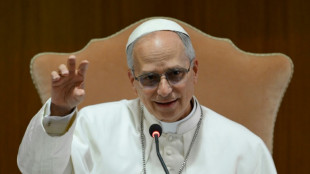
-
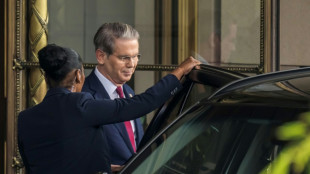 US-China talks resume as Trump hails 'total reset' in trade relations
US-China talks resume as Trump hails 'total reset' in trade relations
-
Ukraine ready for Russia truce talks, Zelensky says

-
 Jubilant Peruvians celebrate new pope at mass in adoptive city
Jubilant Peruvians celebrate new pope at mass in adoptive city
-
Scottish refinery closure spells trouble for green transition
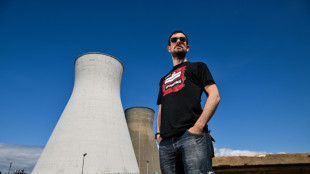
-
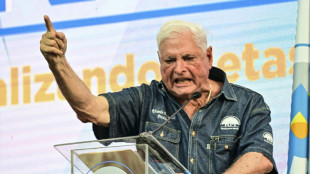 Convicted ex-Panama president Martinelli granted asylum in Colombia
Convicted ex-Panama president Martinelli granted asylum in Colombia
-
IPL chiefs in talks about restart following ceasefire: reports


Trump's call for AI deregulation gets strong backing from Big Tech
Major tech firms are pushing the administration of President Donald Trump to loosen rules on building artificial intelligence, arguing it is the only way to maintain a US edge and compete with China.
Spooked by generative AI's sudden advance, governments initially scrambled to develop guardrails, as major tech companies rapidly integrated the technology into their products.
Since taking office in January, the Trump administration has shifted focus toward accelerating AI development at all costs, pushing aside concerns about the models suffering hallucinations, producing deepfakes, or destroying human jobs.
"The AI future is not going to be won by hand-wringing about safety," Vice President JD Vance told world leaders at a recent AI summit in Paris.
This message unsettled international partners, particularly Europe, which had proudly established the EU AI Act as a new standard for keeping the technology in check.
But, faced with America's new direction, European officials are now pivoting their messaging toward investment and innovation rather than safety.
"We're going to see a significant pullback in terms of the regulatory efforts... worldwide," explained David Danks, professor of data science and philosophy at University of California San Diego.
"That certainly has been signaled here in the United States, but we're also seeing it in Europe."
- 'Step back' -
Tech companies are capitalizing on this regulatory retreat, seeking the freedom to develop AI technologies that they claim have been too constrained under the Biden administration.
One of Trump's first executive actions was dismantling Biden's policies, which had proposed modest guardrails for powerful AI models and directed agencies to prepare to oversee the change.
"It's clear that we're taking a step back from that idea that there's going to be a coherent overall approach to AI regulation," noted Karen Silverman, CEO of AI advisory firm Cantellus Group.
The Trump administration has invited industry leaders to share their policy vision, emphasizing that the US must maintain its position as the "undeniable leader in AI technology" with minimal investor constraints.
The industry submissions will shape the White House's AI action plan, expected this summer.
The request has yielded predictable responses from major players, with a common theme emerging: China represents an existential threat which can only be addressed by plowing an open path for companies unencumbered by regulation.
OpenAI's submission probably goes the furthest in its contrast with China, highlighting DeepSeek, a Chinese-developed generative AI model created at a fraction of American development costs, to emphasize the competitive threat.
According to OpenAI, American AI development should be "protected from both autocratic powers that would take people's freedoms away, and layers of laws and bureaucracy that would prevent our realizing them."
For AI analyst Zvi Mowshowitz, OpenAI's "goal is to have the federal government not only not regulate AI," but also ban individual US states from doing so.
Currently engaged in litigation with the New York Times over the use of its content for training, OpenAI also argues that restricting access to online data would concede the AI race to China.
"Without fair use access to copyrighted material...America loses, as does the success of democratic AI," OpenAI said.
Another response submitted by a group of Hollywood celebrities -- including Ben Stiller and Cynthia Erivo -- rejected the notion, reflecting the film and television industry's contentious relationship with the technology.
- 'Essential' -
In its response, Meta touted its open Llama AI model as part of the fight for American technological superiority.
"Open source models are essential for the US to win the AI race against China and ensure American AI dominance," the company stated.
CEO Mark Zuckerberg has even advocated for retaliatory tariffs against European regulatory efforts.
Google's input focused on infrastructure investment for AI's substantial energy requirements.
Like its peers, Google also opposes state-by-state regulations in the US that it claims would undermine America's technological leadership.
Despite the push for minimal oversight, industry observers caution that generative AI carries inherent risks, with or without government regulation.
"Bad press is universal, and if your technology leads to really bad outcomes, you're going to get raked over the public relations coals," warned Danks.
Companies have no choice but to mitigate the dangers, he added.
H.Weber--VB

